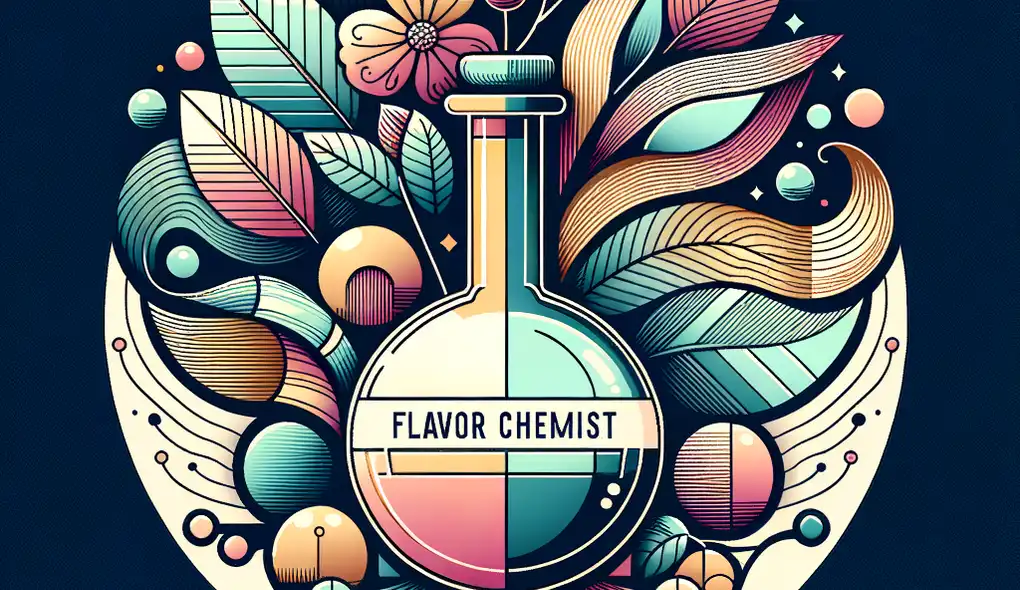What analytical techniques have you used in flavor chemistry?
Flavor Chemist Interview Questions
Sample answer to the question
In my previous role as a Flavor Chemist, I utilized various analytical techniques in flavor chemistry. These included GC-MS (Gas Chromatography-Mass Spectrometry) and HPLC (High Performance Liquid Chromatography) to analyze and identify flavor compounds in food and beverage products. I also used sensory evaluation techniques to assess the taste and aroma of different flavors. Additionally, I conducted shelf-life studies to ensure the stability and quality of flavors over time. My experience with flavor creation software and databases allowed me to efficiently manage and track formulations, experiments, and results. Overall, I have a strong foundation in analytical techniques for flavor chemistry.
A more solid answer
In my previous role as a Flavor Chemist, I utilized a range of analytical techniques to investigate and enhance flavors. I regularly employed GC-MS to identify and quantify volatile flavor compounds, allowing me to understand the composition of different flavors. Additionally, HPLC was instrumental in separating and analyzing complex mixtures to identify specific flavor molecules. I also conducted sensory evaluations using trained panels to assess the taste and aroma profiles of flavors, ensuring they met the desired sensory characteristics. Furthermore, I conducted shelf-life studies to evaluate flavor stability over time, employing accelerated aging techniques to simulate real-world conditions. I leveraged flavor creation software and databases to manage and track formulations, experiments, and results efficiently. My proficiency in these analytical techniques enabled me to develop new flavors, improve existing ones, and meet customer demands effectively.
Why this is a more solid answer:
The solid answer goes into more detail about the specific analytical techniques used in flavor chemistry. It provides specific examples such as GC-MS and HPLC and explains how they were used to analyze flavor compounds. It also mentions the use of sensory evaluations and shelf-life studies, demonstrating a comprehensive understanding of flavor chemistry. However, it could still be improved by providing specific examples of projects or achievements that highlight the candidate's expertise in using these techniques.
An exceptional answer
In my role as a Flavor Chemist, I have extensive experience in using a wide range of analytical techniques to advance flavor chemistry. I have applied GC-MS to perform targeted and non-targeted analysis, allowing me to identify and quantify volatile and semi-volatile flavor compounds in various food and beverage matrices. By combining the power of GC-MS with headspace sampling techniques, I was able to capture the aroma profile of complex flavors, enabling a deeper understanding of their composition. Additionally, I have utilized HPLC to separate and analyze flavor molecules with precision, particularly in cases where GC-MS falls short due to compound volatility or thermal instability. To evaluate the sensory aspects of flavors, I have designed and executed discrimination tests, descriptive analysis, and consumer preference studies, utilizing statistical analysis to interpret the results. This comprehensive sensory profiling has provided valuable insights for flavor optimization and development. Furthermore, I have conducted accelerated and real-time shelf-life studies to assess flavor stability and make formulation adjustments accordingly. I have also leveraged flavor creation software and databases to organize and manage an extensive library of flavor data, streamlining the development process. By keeping up with the latest advancements in flavor chemistry and attending industry conferences, I always strive to incorporate innovative analytical techniques into my work to push the boundaries of flavor creation.
Why this is an exceptional answer:
The exceptional answer provides a highly detailed account of the candidate's expertise and achievements in using analytical techniques in flavor chemistry. It goes beyond the basic and solid answers by discussing targeted and non-targeted analysis using GC-MS, headspace sampling techniques, and the use of HPLC for challenging compounds. The answer also highlights the candidate's proficiency in sensory evaluations and statistical analysis, demonstrating a holistic approach to flavor optimization. Additionally, the candidate mentions attending industry conferences and staying up-to-date with advancements in flavor chemistry, showcasing their commitment to professional growth and innovation. Overall, the exceptional answer showcases a depth of knowledge and practical experience in analytical techniques for flavor chemistry.
How to prepare for this question
- 1. Familiarize yourself with different analytical techniques commonly used in flavor chemistry, such as GC-MS, HPLC, and sensory evaluations.
- 2. Be prepared to provide specific examples of projects or achievements where you have utilized these techniques to enhance flavors or solve analytical challenges.
- 3. Stay updated with the latest advancements in flavor chemistry by reading industry publications and participating in relevant webinars or conferences.
- 4. Develop a solid understanding of the regulatory requirements and safety protocols related to flavor development.
- 5. Highlight your ability to work independently and manage multiple projects, as these skills are important for a Flavor Chemist role.
What interviewers are evaluating
- Analytical techniques
- Flavor chemistry
Related Interview Questions
More questions for Flavor Chemist interviews